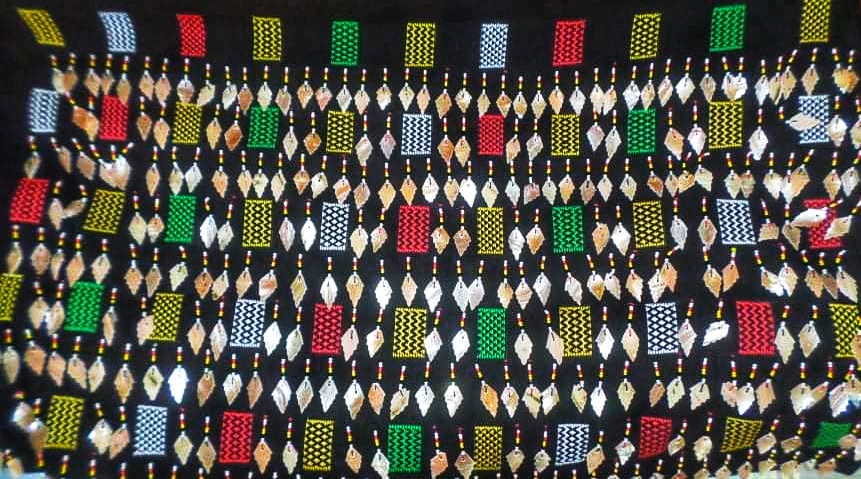
A. Gender and Development
From our awareness of Gender and Development springs an ardent commitment to work in transforming gender-based relationships and structures in society. Thus, both women and men, equally recognized for their worth and dignity, become able partners at home and at work, to pursue and enjoy the benefits of sustainable development. It aims to enable women to be aware of the socio-cultural and political conditions that affect their roles, choices, image and relationships; and to facilitate responsive actions as a result of their awareness and consciousness.
Goals:
- To promote equality in value and power relationship
- Eliminated gender biases that impede the opportunities and resources of women and men to attain a full and satisfying life
- Observed the inherent right of women and men to equal opportunities for growth, access to resources and to the benefits of development.
- Established mutually affirming and life-giving relationships based on the fundamental equality of women and men in value and rights.

Objectives:
- To empower women through transformative trainings, education, advocacy and organizing;
- To ensure the gender responsiveness of programs, projects and activities by integrating, respecting and thinking of women’s needs in planning, implementing and monitoring; and
- To attain a gender-responsive environment in the community through venues that raise gender awareness and reflection of gender and gender issues leading to actions for transformation of gender biases.
Indicators:
- Identified gender biases and the root causes of these (historical and cultural) (research)
- Transformed gender- based roles and images in the family and community
- Confidence of women to make decisions
- Participation of women in decision making
- Women considers decision making as a primary role
- Greater personal and economic independence for women
- Responsive Gender programs
- Establish partnership with other networks
- Leaders and officials respecting and promoting the rights of IPs and women or the marginalized
- Organizations able to establish mechanics to sustain themselves
- Possess a critical assessment of development projects introduced in the community for appropriate actions

B. Ancestral Domain Program
To ensure that our region remain worthy as our children’s legacy, we pursue efforts in response
to the issues of unpeace and underdevelopment in the region based on the prevailing incapacity
of indigenous people to fully exercise their rights over their ancestral domains. The program
aims to attain self-sustaining communities through women’s initiatives for peace and
development anchored on their transformed indigenous knowledge, systems and practices.
Goals:
- Sustained, preserved, restored and enhanced our ancestral domain for the next generation using the heritage conservation framework
- Capacitated the people (planning is not the goal but capacity building main goal) and partner communities to utilize their traditional practices in strengthening their resiliency to climate change

Objectives:
- To facilitate peoples’ awareness and action to protect their ancestral domain based on their connection with land that values life
- To facilitate the transformation of indigenous practices towards the protection of their ancestral domain from development aggression and people’s destructive actions
- To help reinforce IP practices of stewardships and caring for the earth
- To help establish mechanisms that uplift socio-economic conditions according to the indigenous people’s stewardship role and spiritualities.
Indicators:
- Able to identify IP practices and values, based on Christian beliefs, values on caring for on another and the earth.
- Show concern for others and in the community by participating in programs, projects, and other mechanisms that cares for the earth and for one another.

C. Sustainable Agriculture Program
Goal: To sustain our people’s existing indigenous practices of farming and land use towards
well-being, sustainable development and food sovereignty.
Objectives:
- To promote natural or indigenous farming methods and practices,
- Strengthen the region’s farming sector to the effects of climate change through research
and studies that aim to discover new approaches of farming that capitalize on existing indigenous
knowledge and practices, and - Tap existing indigenous resource

D. Social Enterprise
Goal: To address the practical gender needs of women and provide opportunities for women’s
livelihood activities towards sustainability.
Objectives:
- Establish women’s social enterprises corresponding to the community needs and resources.
- Expand or level-up existing women’s enterprises through additional capacity building to
access additional resources.

Indicators:
- Women are capacitated on Social Enterprise (Value Chain analysis, Business plan andProduct development).
- Women are utilizing existing resources and developed innovations from it.
- Established social enterprise that promotes partnership for men and women.
- Established social enterprise that promotes values and protection of the environment.
Strategies:
- Capacity building
- Networking and partnership building
- Sustaining the Passing on the Gifts (POG) Project.

E. Learning Resource Center Services and Publications
The Learning resource center shall be the venue of center-based focused group discussions,
symposium and forum on spirituality, gender and development and Cordillera issues. The center
houses a library of systematized books; journals, newsletters, magazines and other literature that
will provide data, information and analysis for setting of directions and policies pertinent to
Gender and Development issues. The center shall also provide a marketing display area for
goods produced by women through their entrepreneurship activities.
Note:
Currently, the IGOROTA Foundation, Inc. (IFI) is extending their advocacies and
programs from the provinces of Benguet (Bokod and Kibungan) and Ifugao (Tinoc, Hungduan
and Mayoyao).


